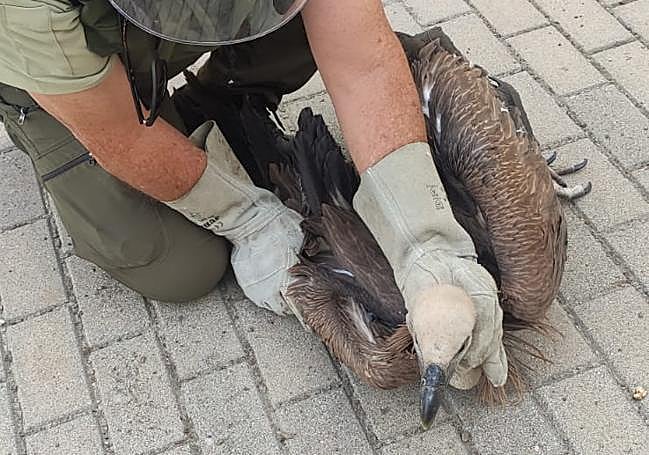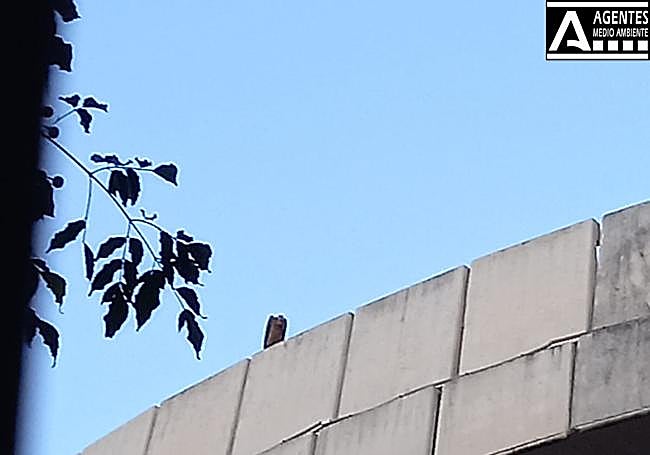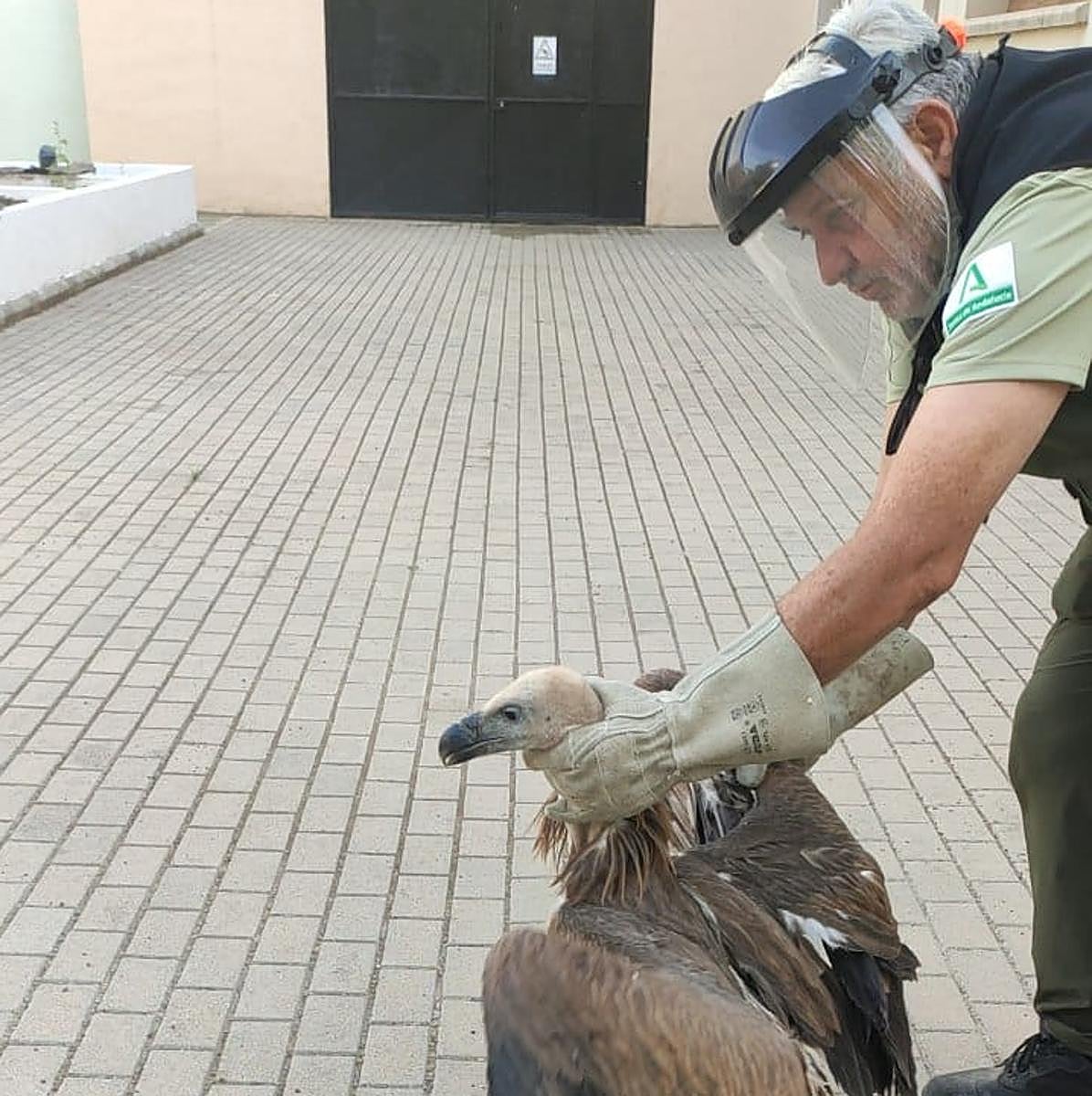Rescuers swoop to aid of griffon vulture spotted in city centre in Spain
The huge bird, which can have a wingspan of up to three metres, was safely captured and taken to one of the Junta de Andalucía's centres for recuperation of threatened species, in Granada
There was a surprise for residents of the Zaidín neighbourhood of Granada city on Wednesday 25 September when a huge griffon vulture landed on Calle Pavía, in the vicinity of the Los Cármenes stadium. The exhausted bird was first spotted at around 8.20am and one of the first witnesses was able to take a photo and upload it to social media to alert both the city hall and Local Police. Fully-grown birds can have a wingspan of almost three metres.
The police force then contacted the Centros de Recuperación de Especies Amenazadas (CREAS) of the Junta de Andalucía, (centre for recuperation of threatened species) who managed to capture the bird and take it to their Granada facilities in El Blanqueo, between Pinos Genil and Cenes de la Vega.

Zoom

Environmental agents told SUR's sister newspaper Ideal that the animal was not injured, although it was malnourished, and they are investigating the reasons that could have led it to perch in the middle of a street in the city.

Zoom

CREA was created in 2001 with the aim of recovering injured specimens of endangered and protected species, in order to subsequently release them into their natural habitat.The main objective of the network is the recovery of threatened or protected terrestrial wildlife. Among other key objectives, it aims to:
- Guarantee an efficient and coordinated service in all the centres that make up the network to respond to calls and transfer the specimens to CREA facilities.
- Establish appropriate diagnosis and treatment in each case.
- To make the general public aware of the negative effects of human interference with wildlife, and to identify positive action by the department to minimise and reverse, where possible, such effects.
- Collect data in order to facilitate their study by technicians and researchers.
- To support the wildlife conservation programmes of the Department of Sustainability and the Environment.

